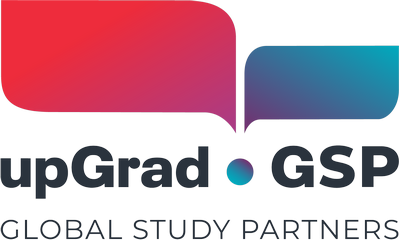Keystone Education Group’s 2024 State of Student Recruitment Report provides valuable insights on key decision points in study abroad planning this year. The report surveyed 27,500 prospective international students from Africa, Asia, Europe and the Americas. All were bound for higher education, mostly for master’s programs, followed by undergraduate and doctoral courses.
Increased student applications
Consistent with other recent surveys, the Keystone report shows an increase in the number of applications filed by international students this year. Students applying to four or more programs have gone up by 250% from last year. Notably, only 11% of students from India will apply to just one program, while 51% of students from Asia will make four or more applications.
The survey suggests that decision-making is becoming slightly slower as 50% more students are taking one to two years to research study options.
The United Kingdom remains the most preferred destination, followed by the United States and Canada. The US is particularly popular among undergraduate students, while the UK captures postgraduate candidates.
Business subjects are still the most applied to programs, followed by arts and humanities courses and clinical and health programs. More students also now prefer studying in-person and on-campus versus previous years.

Capturing prospective students
Most students use online search engines such as Google to research their study options, followed by university listing platforms and social media. 78% of prospective students also follow universities on social media. Students from Africa generally rely on Facebook, while Indian students are primarily using LinkedIn to look at universities. TikTok is also popular with students from the US, Canada and Europe.
70% of prospective students still want to be contacted by email, though it has slightly decreased in popularity from 2023. Instead, instant messaging has increased in popularity by 36%. Speedy responses are highly critical to applying students, with 85% expecting a response within 24 hours or less.
When contacting universities and application services, students are most interested in receiving information on scholarship and funding assistance, tuition fee rates, and visa and immigration details.

Key selection factors
The report reveals that students want to study internationally for career progression or to qualify for further study or a specific career. Indian students are highly motivated to “improve their earnings,” more so than students from Europe or Asia. Interestingly, students interested in a Bachelor’s degree cite “having an adventure” as their top interest in studying abroad.
Prospective students generally consider a program over a school or country when applying to study abroad. Keystone suggests this is because students are more focused on the practical and individual skills they can obtain from programs. However, in 2024, this priority took a dip in influence and schools gained an increase in importance versus last year. At the Bachelor’s level, the school is more important, while Master’s or Doctorate-level students deem the program as more influential.

When choosing a school, students mainly consider employment outcomes, reputation and ranking and unique or specialist programs. On the other hand, the most important selection factors for a program are work placement or internships, with its popularity growing by 46% from 2023, followed by funding opportunities and affordable fees.

Barriers to studying abroad
When asked, “What would prevent you from applying [abroad]?” students pointed to application fees as the most significant barrier, underscoring the influence of scholarships and university funding in applications. This is further emphasised by students’ confirmation that they intend to fund their studies through financial assistance, either from private organisations or the state, or through work opportunities available during their studies.
Unclear or missing information, being unresponsive to inquiries and a lack of student reviews also hinder student applications. Fortunately, these are issues that universities and recruiters can easily address.
Prospective students have expressed that their biggest concerns while applying in 2024 include:
- cost
- eligibility
- confidence
- time
- safety
- political concerns.

Addressing key decision points
The 2024 State of Student Recruitment Report highlights important decision factors that universities and recruiters can use to improve their application processes. By understanding these insights, stakeholders can ensure that they provide students from all over the world with the best services. Contact our business development experts to know how you can help prospective students achieve their study-abroad goals.




